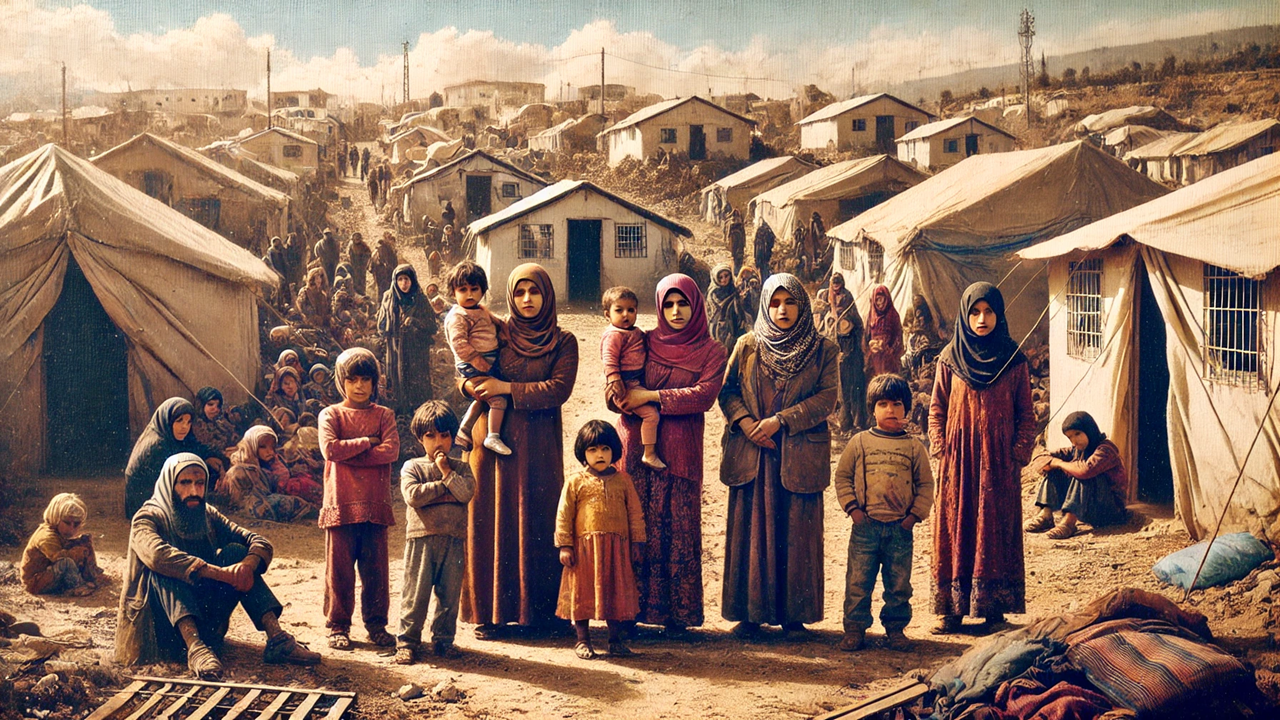LAC Countries Adopt Chile Declaration to Address Refugee and Displacement Challenges
New Regional Framework Sets Path for Protection, Inclusion, and Sustainable Solutions for Refugees, Displaced People, and Stateless Individuals Over the Next Decade

In a historic move today, Latin American and Caribbean countries renewed their commitment to the protection and inclusion of refugees, displaced people, and stateless individuals by adopting the Chile Declaration and Plan of Action. This milestone marks the culmination of commemorations for the 40th anniversary of the 1984 Cartagena Declaration on Refugees, a foundational document that has shaped one of the world’s most significant regional frameworks for refugee protection and solutions.
The Chile Declaration and Plan of Action provides a comprehensive roadmap for addressing forced displacement in the region over the next decade, offering common responses tailored to the unique challenges faced by countries of origin, transit, destination, and return. The new framework highlights the need for solidarity and cooperation in facing the complex and expanding displacement crisis in Latin America and the Caribbean, driven by violence, persecution, and the adverse effects of climate change.
A Renewed Commitment to Protection and Innovative Solutions
In his remarks, Alberto van Klaveren, Chile's Minister of Foreign Affairs, emphasized the importance of coordination among multiple actors in tackling displacement. “This process will pave the way throughout the next decade, incorporating innovative approaches to address the challenges of displacement,” he said. “By adopting the Chile Declaration and Plan of Action, we reaffirm our commitment to facing today’s challenges and upholding the Cartagena Process tradition of finding innovative solutions to protect and assist refugees, displaced people, and stateless people in the region.”
The Declaration outlines strategic actions to address disaster-induced displacement, with a particular focus on creating formal employment through regional business networks and leveraging technological advancements, such as the digitalization of asylum systems and the use of biometric data to expedite refugee status determination procedures.
Inclusive Consultations Drive the Plan of Action
The Chile Declaration and Plan of Action emerged from extensive consultations conducted throughout 2024 under the Cartagena+40 Process. These consultations involved governments, civil society organizations, displaced people’s groups, international bodies, the private sector, and other stakeholders. Three main topics guided the discussions: enhancing protection for people on the move, fostering inclusion and integration through sustainable solutions, and addressing displacement in the context of disasters and climate change.
Filippo Grandi, the UN High Commissioner for Refugees, underscored the significance of the Cartagena Process in achieving sustainable solutions for displacement. “The Cartagena Process symbolizes the humanitarian and apolitical work of UNHCR, and it is through coordination across global, regional, and national efforts that we can overcome the challenges refugees and displaced people face,” he said. “The spirit of Cartagena remains just as relevant today as it was 40 years ago.”
Strengthening Protection and Promoting Integration
The Plan of Action outlines key steps to improve protection and inclusion for displaced populations. It focuses on strengthening asylum systems, enhancing data management, expanding assistance programs, and fostering technological innovation in refugee status determination. Additionally, the Plan promotes temporary regularization procedures to uphold the right to seek asylum, with the aim of eliminating statelessness.
Furthermore, the Plan stresses the importance of improving access to essential services such as healthcare, education, and housing, while also promoting job training, employment networks, and the validation of professional qualifications. It seeks to empower local communities by involving them in policymaking and supporting local integration and reintegration for refugees and displaced people.
Disaster- and Climate-Induced Displacement
The Plan of Action also addresses displacement caused by natural disasters and climate change, recommending the implementation of early warning systems, legal frameworks for evacuation, and risk management strategies to enhance resilience. By strengthening community resilience and adaptation to climate-related challenges, the framework aims to ensure that vulnerable populations are better prepared for the future.
Regional Coordination for Effective Implementation
A new Follow-up and Coordination Mechanism has been established to oversee the implementation of the Chile Declaration and Plan of Action. Chile will lead the mechanism for the next decade, with support from a rotating vice-presidency and technical assistance from the UN Refugee Agency (UNHCR). This coordination mechanism will bring together governments, civil society, and other key stakeholders to monitor progress, promote regional harmonization, and ensure the efficient and sustainable delivery of solutions.
As the new framework for refugee protection and displacement solutions, the Chile Declaration and Plan of Action also aligns with the 2018 Global Compact on Refugees, reinforcing the commitment to responsibility-sharing and international cooperation.
A Call for Global Support
The adoption of the Chile Declaration and Plan of Action calls on the international community to support host countries and regional efforts in implementing the framework’s recommendations. By strengthening regional leadership and solidarity, the Plan of Action aims to protect and find sustainable solutions for refugees, displaced people, and stateless individuals across Latin America and the Caribbean.
- READ MORE ON:
- Chile
- 1984 Cartagena Declaration on Refugees










